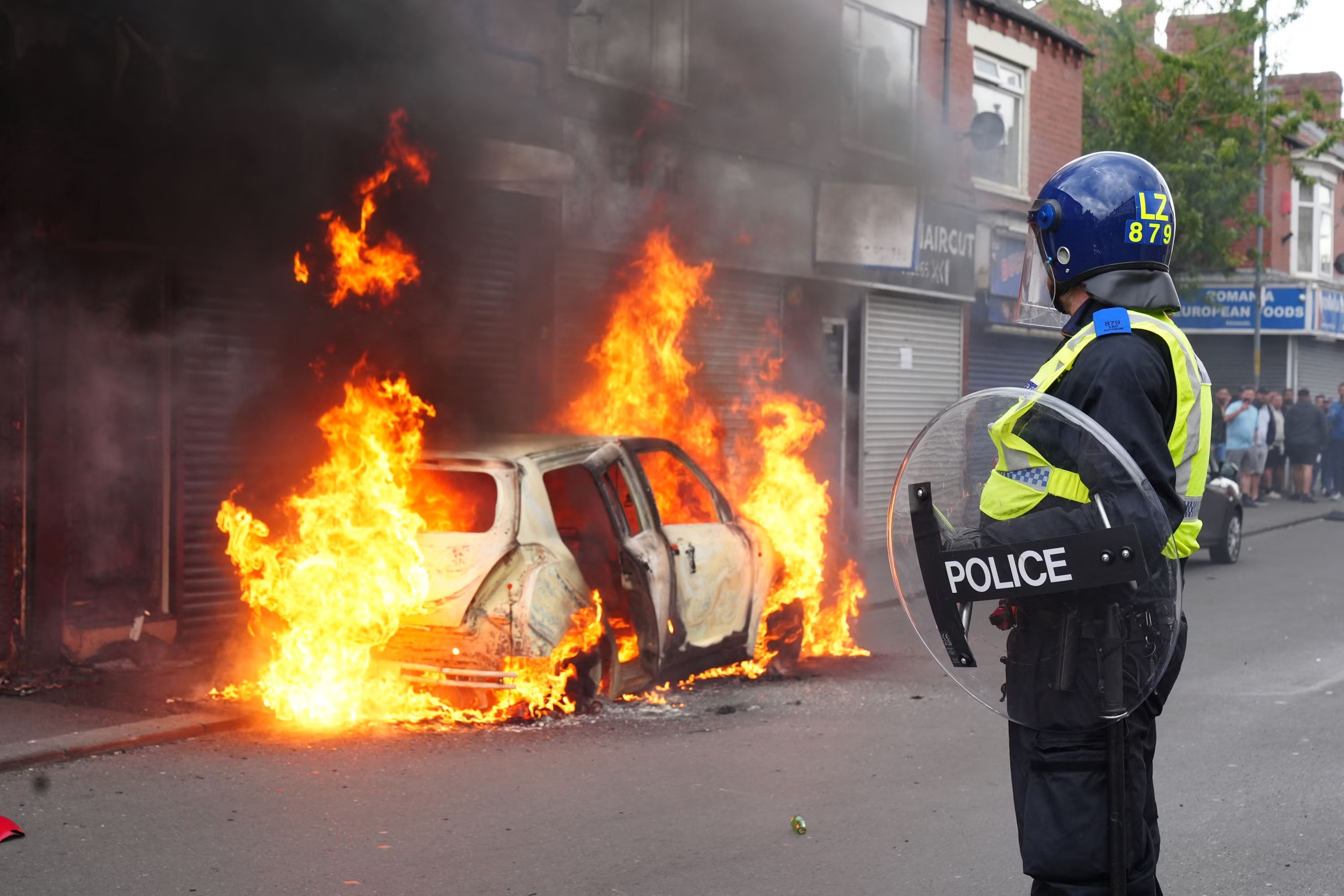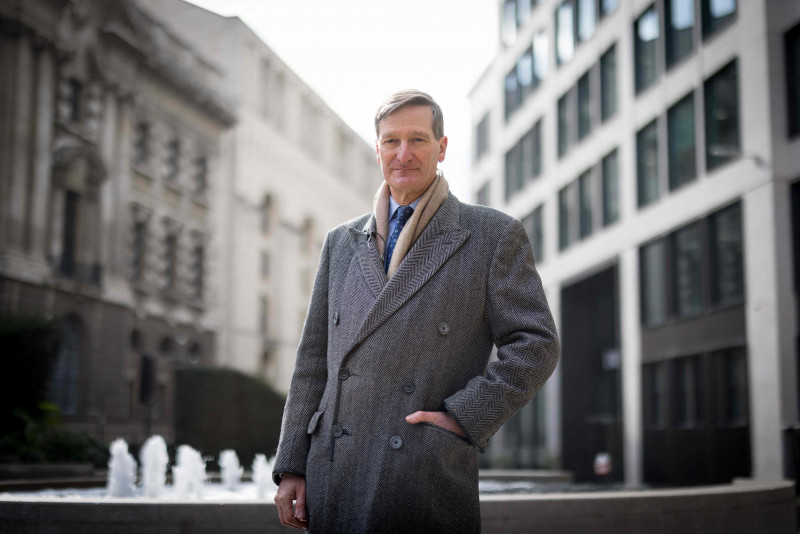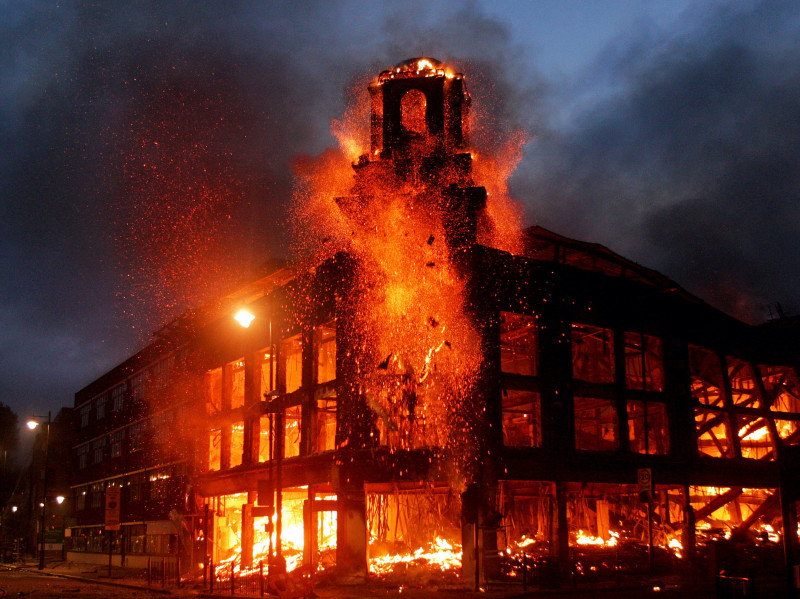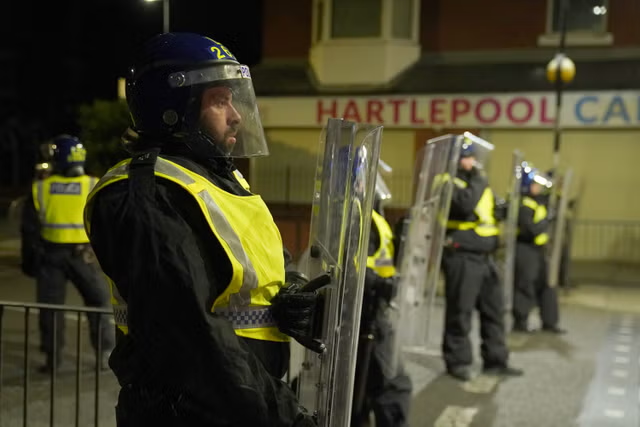Support truly
independent journalism
Support Now
Our mission is to deliver unbiased, fact-based reporting that holds power to account and exposes the truth.
Whether $5 or $50, every contribution counts.
Support us to deliver journalism without an agenda.

Louise Thomas
Editor
The former attorney general during the 2011 riots has warned recent far right violence should be a wake up call for the country’s broken justice system.
Dominic Grieve praised the rapid convictions in recent days of those who took part in the violence, saying they had used similar tactics in 2011, adding that the authorities had “risen to the occasion”. So far more than 480 people have been arrested, with 150 appearing in court and stiff jail terms for those who have been sentenced so far.
But, he stressed, high-profile arrests and sentences will not necessarily prevent future violence on the streets unless extensive court delays caused by years of underfunding are dealt with.

“There is a much wider and longer term issue, which is the justice system in this country is not functioning properly,” he told The Independent. “It can rise to the occasion, as one can see in current circumstances. But generally speaking, the length of time it takes for somebody to be brought to justice is much too long.
“And I think that in a society where there are very, very long delays in dealing with ordinary criminality, it is an extremely unsatisfactory state of affairs, and that comes from persistent underfunding. In fairness to the last Conservative government, the underfunding goes back way before they came into office as the Coalition in 2010, but it certainly hasn’t been improved since.”

Despite the rapid punishments meted out to far-right rioters in the last week, victims of crime are waiting a near-record length of time for justice.
The number of Crown Court cases waiting more than two years to be resolved has soared 10-fold in just four years, new analysis of the latest official data by The Independent has found, from 555 in December 2019 to 6,523 in the same month last year.
The length of time it took between a crime being committed and the case concluding in the crown courts grew from an average of 486 days at the end of 2019 to 683 days over the same period last year, just down from a peak of 703 days six months earlier.

Funding cuts hollowed out the resilience of the court system even before the Covid crisis and more recent barristers’ strikes. The number of backlogged cases backlogged had soared to a record 68,125 in the crown courts by April – up more than 8,000 in the space of a year.
“If justice is not routinely delivered people lose confidence in democracy and the rule of law,” Mr Grieve added. “And I think you could even make an argument there’s a connection between that and people going out and rioting in the streets, I think it’s a bit of a wake up call. ”
The justice system was “in a state of almost collapse,” he added.
Tyrone Steele, deputy legal director at campaigning organisation Justice, agreed with the former attorney general’s assessment.
"We all need a justice system that leaves communities safe and victims supported,” Mr Steele said. “Yet over a decade of underfunding has left courts straining under the buckling of vital surrounding services like housing, mental health, and prison rehabilitation. Over half of our courts have closed since 2010 and legal aid professionals are underpaid and demoralised.
"To fix this, we need proper investment in courts and legal aid alongside wide-ranging reforms to reduce crime in the first place, including tackling poverty and poor housing and improving mental health and addiction services."
The Ministry of Justice insists it is working to speed up the courts, by ensuring they sit for the maximum number of days and investing in so-called ‘Nightingale courtrooms’ to allow courts to hear more cases.
The new Labour government has pledged to cut backlogs. In June the new justice secretary Shabana Mahmood said: “Thanks to 14 years of Tory chaos, we are seeing unacceptable delays in the courts... For too many, justice delayed has become justice denied.”
Disclaimer: The copyright of this article belongs to the original author. Reposting this article is solely for the purpose of information dissemination and does not constitute any investment advice. If there is any infringement, please contact us immediately. We will make corrections or deletions as necessary. Thank you.



